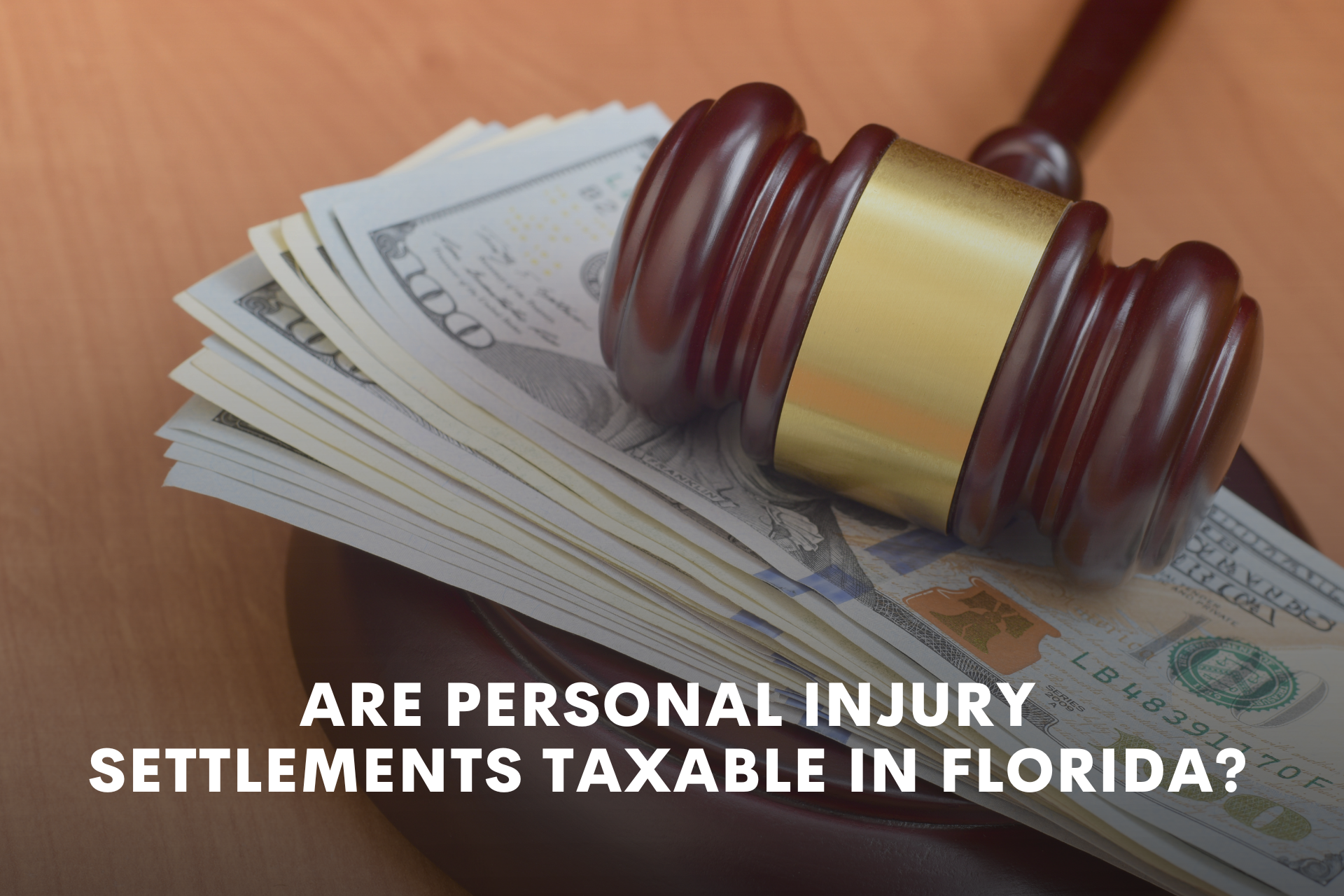Tax season is upon us and if you or someone you know was involved in an accident and received compensation from the personal injury settlement, you might wonder if it’s taxable.
The short answer is in general, personal injury settlements are not taxable in Florida.
However, there are instances that we’ll discuss in this blog when your personal injury settlement might be taxable.
But first, let’s highlight what’s considered “tax-free” in the state of Florida:
- Compensation for physical injury or physical sickness.
- Compensation for emotional distress as a result of physical sickness or injury.
- Compensation for lost wages because of a physical injury.
- Compensation for medical costs.
Note: If you deduct a medical expense, but are later reimbursed by an award or settlement, you’re required to report the money you previously deducted as income on your tax return for the year in which you received the money.
Now, as mentioned before, there are times when a personal injury settlement is subject to taxation. These instances include:
- Emotional Distress – If you or someone you know suffered emotional distress as a result of their injury, it’s not considered taxable income. It’s important to note if the distress isn’t related to an injury, it’s taxed.
- Defamation – This is typically a gateway to lost wages and because of that is considered taxable compensation.
- Discrimination – Discrimination commonly results in lost wages which makes it a form of compensatory income that’s taxable.
- Harassment – This is determined on a case-by-case basis. The IRS only taxes harassment if it’s in relation to the injury. When harassment is caused by injury or emotional distress, it may not be taxable.
- Invasion of privacy – This is punitive damage because it’s not directly related to the costs incurred from the injury and is taxed.
- Lost wages – Wages are part of your income and the IRS treats them as taxable income.
- Wrongful termination -This also falls under the lost wages category and therefore is taxed.
- Punitive damages – These damages exceed the general compensation and are seen as a form of income that’s taxed by the IRS.
Ready to file a personal injury claim? Contact us today and book your free case evaluation.








